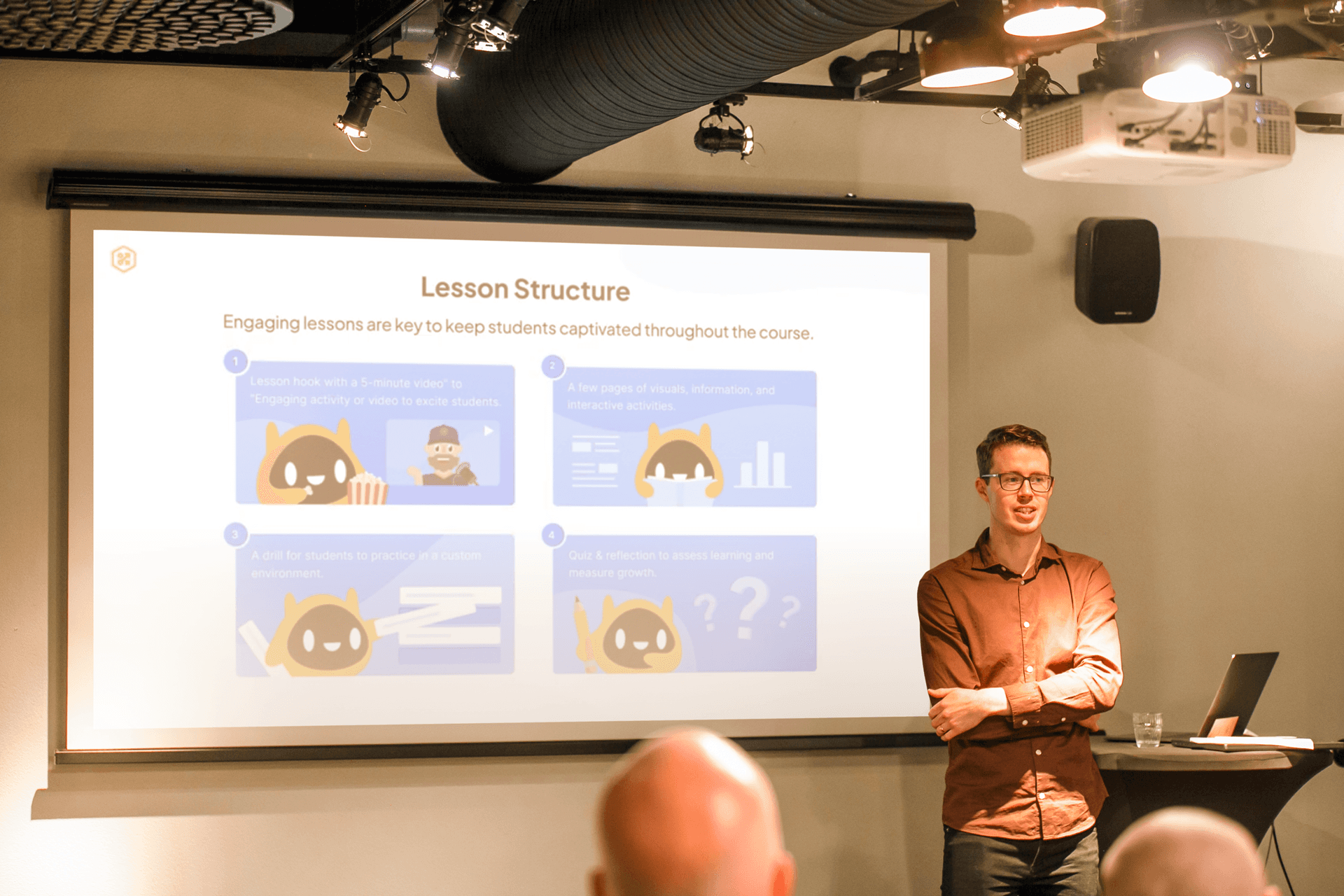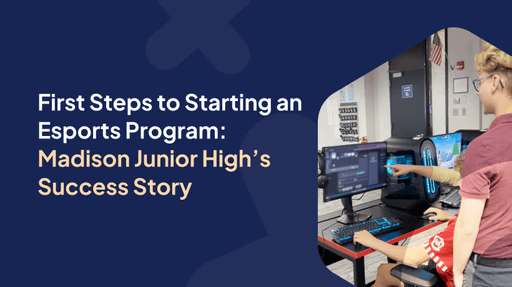Where does it fit?
High School CTE Course
Media Production Fundamentals is a high school course that introduce students to the Media Production pathway.
Middle School
Minecraft Education Courses
High School
Esports Electives
Game Design Pathway
Media Production Pathway
Digital Technology Pathway
Course Outline
Exploring the foundational skills in media production.
8 Units
89 Lessons
Available in English and Spanish
Unit 1 · 3 Lessons
Introduction to Esports Media
The fundamentals of esports media production, covering the course structure, classroom procedures, and safety guidelines. The unit sets the stage for understanding the responsibilities and expectations of working in esports media.
Objectives
Understand course pacing and structure
Review safety guidelines of the course
Complete pre-survey to assess existing knowledge
Set up digital portfolio
1
2
Unit 2 · 7 Lessons
Media Production in Esports
The foundational concepts of video production as it relates to the esports industry. Students will explore audience needs, client expectations, and legal and ethical considerations. By the end of the unit, students will develop an initial video concept, which will serve as the starting point for their portfolio and their capstone project.
Objectives
Explore different types of audiences
Identify and understand client needs
Learn about legal and ethical constraints
Understand different production formats
Brainstorm and develop video concept
3
Unit 3 · 11 Lessons
Scripting for Esports
Developing content for esports broadcasts, emphasizing narrative storytelling, scripting, and segment structuring. Students will explore the essential components of esports media, such as dialogue, informational elements, and highlights, culminating in the creation of scripts for their capstone projects.
Objectives
Learn how to craft compelling narratives
Script effective dialogue
Structure video into segments
Create script for video concept
Collect feedback and iterate
4
Unit 4 · 12 Lessons
Visual Language and Storyboarding
The principles of visual language in esports media production. Students will analyze genres, codes, and conventions while exploring elements like color, signs, symbols, and framing. Through collaborative storyboarding and group work, students will develop visual narratives and create a storyboard for their video project.
Objectives
Analyze esports media genres
Understand colors impact in storytelling
Use visual cues to communicate
Create compositions using framing techniques
Develop a storyboard for the project
5
Unit 5 · 13 Lessons
Technical Setup and Field Production
Learning about the roles of production team members, mastering lighting and sound setups, and practicing real-world production scenarios to develop the technical proficiency required for high-quality broadcast execution. Students will record footage for their video project based on their storyboard and script.
Objectives
Explore the various roles in esports production
Learn about essential broadcast equipment
Understand basic lighting techniques
Optimize audio systems for live broadcasts
Capture footage of multiple types
6
Unit 6 · 17 Lessons
Editing Basics
Creative and technical integration of audio and visual elements into esports broadcasts. Students will start editing their video and work with image editing, motion graphics, sound design, and visual effects to elevate production quality.
Objectives
Cut and arrange footage to set flow and pace
Use color correction and grading techniques
Add transitions and visual effects
Integrate voiceovers and sound effects
Work in groups to edit video
7
Unit 7 · 16 Lessons
Motion Graphics and Animation
The fundamental principles and techniques of motion graphics and animation in esports media production. Students will explore how dynamic visuals, animations, and graphics can enhance broadcasts, engage audiences, and convey information effectively, and integrate it into their projects.
Objectives
Analyze the role and impact of motion graphics and animation
Learn the fundamentals of animation
Use motion graphics for dynamic information
Design and animate on-screen overlays
Capture footage of multiple types
8
Capstone Project · 10 Lessons
Portfolio Development
Students create a professional esports broadcast portfolio that showcases their skills, creativity, and technical proficiency. Through revising past work, designing portfolio-specific content, and crafting reflective narratives, students will compile a comprehensive portfolio ready for presentation to industry professionals, peers, and instructors.
Objectives
Plan the layout and sections
Create branded graphics
Add reflective narrative in text
Present the completed portfolio
Reflect on course outcomes and career goals
Professional Development
Integrate esports into the classroom
District wide course launch
Full lesson plans and teacher instructions
Set up IT infrastructure
Access to Educators Community














